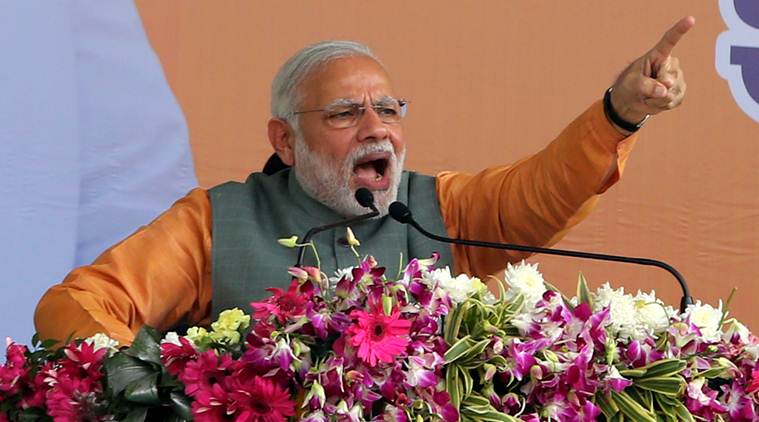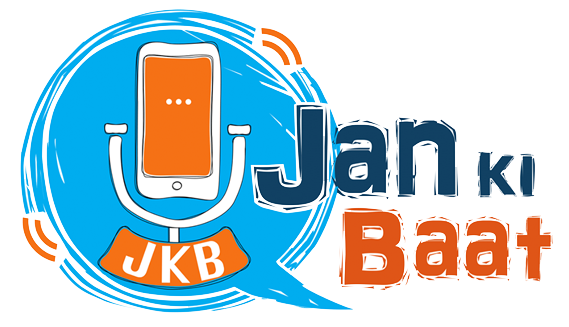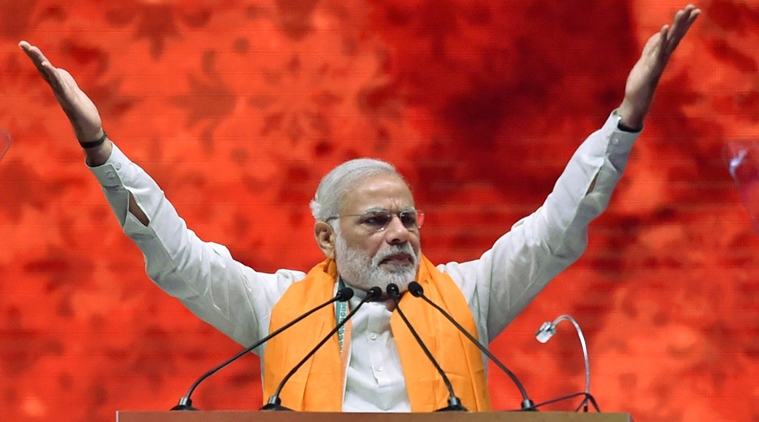[This article first appeared on DailyO on 18-03-2018. The original writeup has been written by Founder&CEO Jan Ki Baat, Pradip Bhandari. The same could be read here.]
*Original Text Starts*
A week, they say, is a long time in politics. But this time around, the Indian political narrative has been redefined in a matter of hours. Let’s analyse the gigantic shift following the by-poll results in Gorakhpur and Phulpur in Uttar Pradesh, and Araria in Bihar, in the run-up to 2019.
‘Yogi after Modi’ is no longer the narrative
The result in Gorakhpur was shocking for most, pleasant for some. Gorakhpur has traditionally been a “math” seat. This was a seat which Yogi Adityanath, before vacating the chair to become the CM, won for five consecutive times. It is a common saying in Gorakhpur that it’s not about the BJP, but Yogi.
Any rational thinker would have expected the by-poll to go in Yogi’s favour (read his nominee). Especially, since he has graduated from being one of the many members of Parliament to become the chief minister of India’s most politically strategic state.
Following his ascension, many inside the BJP looked up to him as the successor to prime minister Narendra Modi’s legacy. A common refrain till March 14 was: ” Modiji ke baad Yogiji (Yogi after Modi)”.
A loss in Gorakhpur by a margin of 21,000 votes cannot be claimed as “just another loss”. If you calculate the vote swing , it is more than two lakhs. Now add to it, just one year of being in power as the chief minister. This result should certainly keep at bay analysts and supporters chanting “Yogi after Modi”, until the saffron-clad man wins the next Assembly elections on his own.
After March 14, he has been reduced to “one of the many” chief ministers of the BJP, and any honest supporter of the party will think twice before calling him “Modi’s successor”.
NaMo and NaMo alone
Prime Minister Narendra Modi, along with his lieutenant Amit Shah, became the election-winning machine for the BJP, conquering state after state wherever he has campaigned (barring the loss in Bihar in 2015). From retaining Gujarat (last December) despite strong anti-incumbency to BJP’s clean sweep in Uttar Pradesh in 2014 Lok Sabha and 2017 Assembly elections, Modi is the sole vote-catcher for the party.
With the latest by-poll results, any distant possibility of a second-in-command who could have challenged him in the near future has been demolished. No BJP state leader has been able to perform and win elections with the same propensity as Prime Minister Modi has done. Not just a BJP leader, but no political leader in the recent past can match his record in winning elections.
Some within the BJP were hoping that Yogi could have emerged as the second choice after Modi. However, after losing his own citadel, serious questions have been raised over his election-winning prowess.
Any BJP leader to even emerge as a distant second must win a state on their own, not to mention retaining his own citadel.
It’s worth mentioning that the BJP has lost all Lok Sabha by-polls where Modi has not campaigned, and won nearly all Assembly elections where the PM canvassed.

Modi versus rest
Contradictions in politics are temporary, survival a necessity. Smart politicians come together to defeat a common rival. 1990s has been a learning experience for any student of Indian politics. 2019 might not be a repeat of the 1990s in terms of outcome, but can be a flashback for alliances.
Since 2014, Congress’ electoral losses have made it one of the many Opposition parties and not the only Opposition. If the Congress continues its losing streak in Madhya Pradesh as well as in Karnataka, its credibility as a national alternative will suffer further dent.
Of course, it will continue to play a significant role in decision-making among Opposition parties, but it won’t be able to call the shots. The script of the Opposition will be written by the likes of Mamata Banerjee, Mayawati, N Chandrababu Naidu and Naveen Patnaik.
Nitish out, Mayawati in
Apart from Gorakhpur, which has taken the media by surprise, the result in Bihar’s Araria Lok Sabha constituency also has national importance on two counts.
1) Nitish Kumar lost the first election after returning to NDA alliance. Even though Araria has been a traditional RJD seat, the defeat signals some sort of crack in Nitish’s backward caste and Mahadalit support base.
2) It has reduced Nitish’s stature in national politics further. Simply put, from being seen as a potential PM candidate to a habitual betrayer, neither the Opposition nor people within his party hold him in high esteem.
In his haste to be “morally upright”, he now appears to be politically confused. However, if Nitish is down, Mayawati has made a comeback.
1) Following the victory in Gorakhpur and Phulpur by-elections, she did not give a single sound bite to the media.
2) Akhilesh Yadav visited her residence, rather than Mayawati coming out and attacking the BJP and PM Modi.
It’s a bigger gamble, which is just not about an agreement with the SP but an attempt to be the key force behind an united Opposition in future. If she manages to win back her Rajya Sabha seat, she will emerge as a strong pillar of the Opposition, apart from Mamata Banerjee.
This is why, the induction of Naresh Agrawal ahead of the crucial Rajya Sabha by-poll might come handy for the BJP. If she fails in her Rajya Sabha bid, the SP-BSP alliance will suffer constant friction between a young “bhatija” and a seasoned “bua”.
All is not well with BJP supporters
The BJP, many believe, is a strong force when in Opposition but struggles when in government. Historically, it has never been in power for two successive terms. In early 2000s, when Atal Bihari Vajpayee was at his peak, very few would have imagined a UPA 1, and not an NDA 2. Notwithstanding the historical blunder (the late Pramod Mahajan thought that calling a Lok Sabha poll early would greatly benefit his party), the massive undercurrent against the BJP went unnoticed in the “India shining” era.
But, Modi is not Vajpayee. He has his ears on the ground and has time and again corrected course. Post-Gujarat Assembly elections, the near whitewash in rural Saurashtra and feedback received on minimal increase of farmer income despite record production, made him push for a populist Budget in 2018. But, following two economic disruptions – demonetisation and GST – the party may be facing its biggest challenge amid its core constitutency of middle class. The low voter turnout in urban Gorakhpur should be an indicator.
The BJP has been making forays into new areas (Northeast), has most states under its belt, highest by any party post-Independence, but in its giant leap forward it should not forget that the voters are still waiting for “achhe din”.
*Original Text Ends*
Original article – https://www.dailyo.in/politics/uttar-pradesh-by-poll-results-2019-lok-sabha-electuions-bjp-modi-yogi-adityanath-united-opposition/story/1/22902.html

